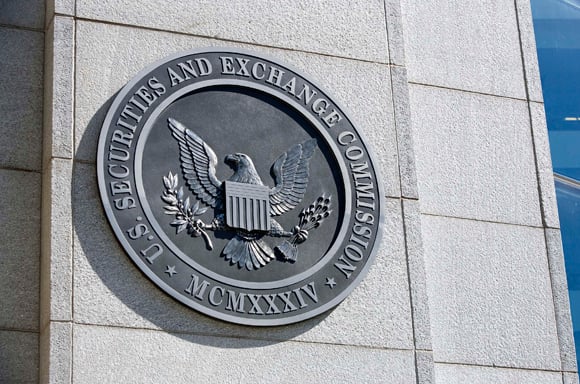Commission alert about possible abuses linked to subdivided account arrangements
Brokers are on notice: The Securities and Exchange Commission is concerned that trading through subaccounts might be used to hide money laundering, insider trading and other serious financial abuses.
The commission's inspections and examinations staff issued an alert yesterday warning that it will be looking closely at the controls and procedures in place at brokerages that offer these accounts because officials believe they are ripe for manipulation.
Customers who open master accounts with a broker-dealer often subdivide it so individual traders or groups of traders can use it. In some cases, the subaccounts may be so divided that the customer and the firm where the account is held might not even know the identity of the traders in the subaccounts, the SEC staff said. Oftentimes, these accounts are opened by limited liability companies, limited liability partnerships or another broker-dealer, the staff alert said.
“Although master/subaccount arrangements have legitimate business purposes, some customers may use them as vehicles for illegal activity or in an attempt to avoid or minimize regulatory obligations and oversight,” said Carlo di Florio, director of the SEC's Office of Compliance Inspections and Examinations.
The alert includes recommendations for brokers to make sure they are complying with the SEC's new market access rule. That rule, which took effect in July, requires procedures to limit the risk of offering market access to customers, including master/subaccounts.
The new rule is one factor in the staff's decision to issue the alert, said George Kramer, Mr. di Florio's senior counsel. The other issue: Staff investigators have uncovered cases that have raised concerns about the market access customers have to these accounts, he said.
A call to the Securities Industry and Financial Markets Association, which represents broker-dealers, wasn't returned.
Some customers “structure their accounts with the broker-dealer this way in an attempt to avoid or minimize regulatory obligations and oversight,” the alert said. Promoters of these types of accounts often target potential traders in the U.S. and abroad by promising increased leverage and lower capital requirements than would be allowed if these people were day traders at a registered broker-dealer, the alert noted.
In one case, the commission charged a Raleigh, N.C., brokerage with failing to comply with an anti-money-laundering rule that requires broker-dealers to identify and check the identities of customers and to document its methods for checking.
The firm, which had 99% of its customers living outside the U.S., allowed subaccount holders to have direct control over securities transactions in the accounts and the foreign entity that held the master account didn't have any involvement in the trades, the SEC alleged. The firm, which was not identified by the regulator, settled the SEC complaint by agreeing to pay a $25,000 fine.







